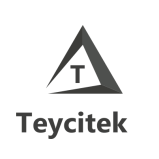
The quick growth of artificial intelligence (AI) and automation technologies is transforming the job landscape. The changes are happening as we know it.. As AI continues to evolve, it’s estimated that over 300 million jobs will be impacted globally. The question on everyone’s mind is whether AI and automation will be a boon or a bane for the workforce. In this article, we’ll discuss how AI can affect different industries, jobs, and productivity.
The Rise of AI and Automation
A Brief History of AI
AI, or artificial intelligence, has come a long way since its humble beginnings in the 1950s. From the early days of chatbots, AI has significantly evolved. Modern AI-powered applications now revolutionize the way we live and work. Tech giants like Google, Microsoft, and OpenAI are investing heavily in AI research. This leads to endless possibilities for AI applications.
The Automation Boom
Automation, the use of technology to perform tasks without human intervention, has also been growing rapidly. Companies are increasingly turning to automation to streamline processes, cut costs, and improve efficiency. In fact, a report by Goldman Sachs predicts that automation could disrupt up to 300 million jobs globally.
The Good, the Bad, and the AI
Job Creation and the AI Revolution
While many worry about the potential job losses due to AI and automation, it’s important to remember that these technologies can also create new jobs. For example, AI is becoming more advanced. This leads to increased demand for skilled professionals. They will develop, implement, and maintain AI systems. Also, new industries and sectors could emerge as a result of AI advancements, creating even more job opportunities.
Job Displacement and the Automation Wave
On the flip side, job displacement is a real concern as AI and automation continue to advance. Some occupations may become obsolete, while others may undergo significant changes in their roles and responsibilities. The impact of AI and automation on jobs will vary. Different sectors and industries will be affected differently. Some will experience a greater impact than others.
Sectors at Risk: Disruption on the Horizon
Manufacturing and the Rise of Robots

The manufacturing sector has long been a prime target for automation. Robots are increasingly taking over tasks traditionally performed by humans. Robots with artificial intelligence are becoming more advanced and affordable. As a result, increased automation in the industry is expected. This will have a big effect on the workforce.
https://www.threadinmotion.com/blog/artificial-intelligence-and-robotics-in-factories
Retail and E-commerce: A New Shopping Experience

AI and automation are also transforming the retail and e-commerce sectors. AI-powered chatbots deal with customer inquiries. Automated warehouses and delivery drones also play a role. These technologies are transforming the way we shop and receive goods. As a result, retail jobs may be at risk. Many brick-and-mortar stores struggle to compete with online counterparts.
Financial Services: AI Takes the Wheel
The financial services sector is another area where AI and automation are making their mark. From AI-powered trading algorithms to automated fraud detection systems, these technologies are streamlining tasks and improving efficiency. But, this also implies potential disruption in finance job roles. AI could replace some traditional positions in banking and investment management.
https://www.oecd-ilibrary.org/sites/39b6299a-en/index.html?itemId=/content/component/39b6299a-en
Occupations in the AI Crosshairs
Customer Service: Say Hello to ChatGPT

Customer service is one job role that could be significantly impacted by AI and automation. AI chatbots like ChatGPT are now available to provide 24/7 automated customer support for businesses. They have the potential to greatly reduce the need for human customer service representatives.
Data Entry: AI Takes Over
Data entry jobs may also be at risk as AI and automation become more sophisticated. AI-powered tools are automating tasks that used to be done manually, replacing data entry clerks and similar roles. These tools process and analyze data, eliminating the need for human input.
Drivers and Transportation: Autonomous Vehicles on the Road
The rise of autonomous vehicles could also have a significant impact on jobs in transportation. Self-driving cars and trucks are becoming more advanced and widespread. This may decrease the need for human drivers, potentially causing job losses in the sector.
AI and Productivity: A Generative Boost
AI and automation may disrupt some job roles and sectors. But, they also hold the potential to significantly boost productivity. AI can help businesses become more efficient and competitive. This is achieved by automating repetitive tasks. AI also enables faster, more accurate decision-making.
Furthermore, AI-powered generative technologies can help streamline content creation and design processes, boosting productivity in creative fields. As AI continues to advance, we may see even greater productivity gains across various sectors.
Preparing for the AI Job Disruption
Reskilling and Upskilling: A Lifelong Learning Approach
To prepare for the impact of AI on jobs, workers must be ready to adapt and learn new skills. Reskilling and upskilling will become increasingly important as AI and automation reshape the job market. Investing in lifelong learning helps workers succeed in the AI-driven future. Staying up-to-date with the latest technological advancements also improves their position.
Education and Training: A New Focus on AI
Educational institutions also play a key role in preparing the workforce for the impact of AI on jobs. Schools and universities should include AI and automation in their courses. They must also provide specialized training programs. This will prepare students for jobs in an AI-dominated job market.
To sum up: Embracing the AI Job Revolution
The impact of AI and automation on jobs is complex. It will undoubtedly shape the future of work. The loss of 300 million jobs is concerning. But AI and automation can create new job opportunities. They can also increase productivity.
To succeed in a world with increasing Artificial Intelligence, workers must commit to lifelong learning. They should regularly invest in education and training. Also, they must adapt to changing job requirements. These actions will help them to capitalize on the opportunities AI presents. So, let’s buckle up and get ready for the wild ride that AI and automation have in store for the job market!
